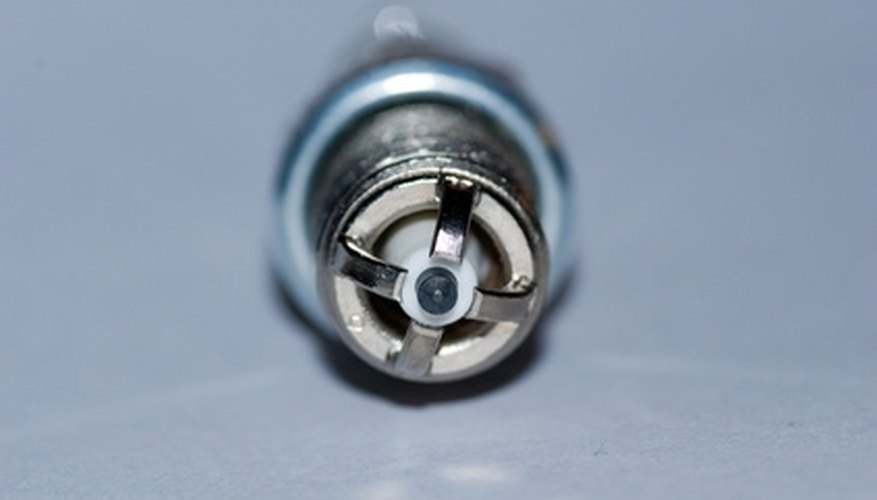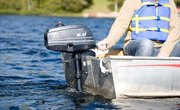
If an outboard motor is "missing," that means that the spark required to ignite the fuel and air mixture from the carburetor is either weak or absent altogether. This means that you are wasting one cylinder's worth of fuel with each full revolution of the motor's flywheel. Either the spark plug is damaged or no power is reaching the plug. Since you can't climb inside the cylinder and watch each spark plug in action, you must check the spark outside of the motor.
Items you will need
Spark plug wrench
Torque wrench
Rubber glove
Rubber mat
Ensure the spark plug wires are properly connected. Inspect the entire wire, from the plug to the magneto beneath the armature plate. Try to remove the spark plugs by hand the ensure the plugs are properly seated. Use a spark plug wrench to remove the plugs, one at a time, and tag them to identify the cylinder in which they were installed. Inspect the plugs.
Replace the spark plugs in the bores from which you removed them, if they are in satisfactory condition. Tighten them to the proper torque with a torque wrench. Hold the plug wire about 1/4 inch from the powerhead, not over the spark plug. Turn the motor over one time only, either with the recoil starter or the electrical starter.
Watch for a spark and observe its character. A good, strong spark means the air and fuel mixture in the cylinder will be ignited properly. Repeat this for each spark plug wire. If a one wire sparks well, but another does not, the system is weak; a weak spark or no spark means the magneto is at fault and should be replaced.
Warnings
- Wear a rubber glove when you preform this test -- the thicker the better -- and conduct the test while standing on a rubber mat.
References
- "Evinrude Repair Manual 2.5 to 250 HP Models, 2002-2007"; Seloc Marine; 2007
Warnings
- Wear a rubber glove when you preform this test -- the thicker the better -- and conduct the test while standing on a rubber mat.
Writer Bio
Will Charpentier is a writer who specializes in boating and maritime subjects. A retired ship captain, Charpentier holds a doctorate in applied ocean science and engineering. He is also a certified marine technician and the author of a popular text on writing local history.



